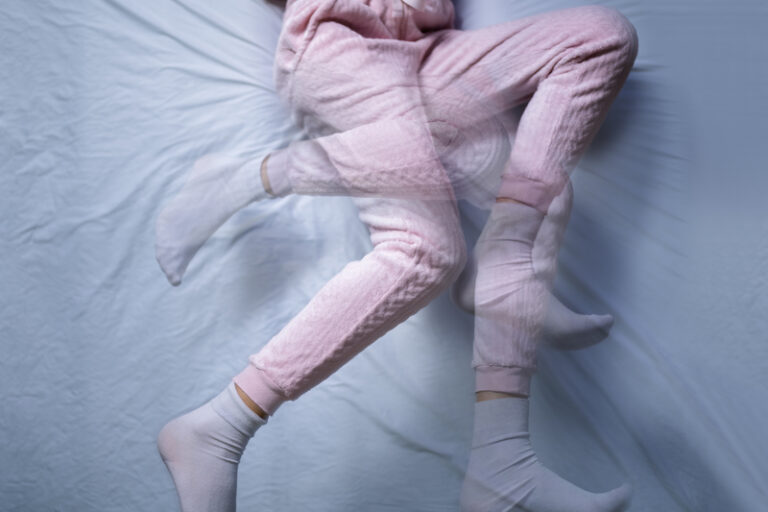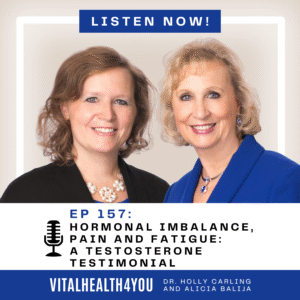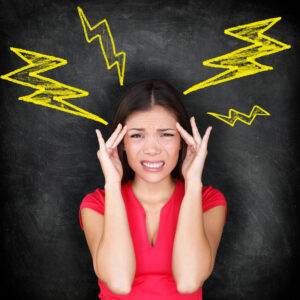Restless Leg Syndrome (RLS) is a chronic progressive condition that causes an uncontrollable urge to move the legs, with sensations including creeping, crawling, aching, itching or electric. Classified as a sleep disorder, symptoms are often most severe at night when a person is resting or lying in bed. Because of sleep disturbance, RLS can quickly erode quality of life, leading to exhaustion and daytime sleepiness affecting mood, concentration, and memory. It affects between four and twenty-nine percent of adults in the Western industrialized world, including ten percent of adults in the US, and is more common in women. Many severely affected are middle-aged or older.
Considerable evidence suggests that RLS is related to a dysfunction in the brain neurotransmitter dopamine, needed to produce smooth, purposeful muscle activity. Disruption in dopamine levels frequently results in involuntary movements, and levels naturally fall towards the end of the day, which may explain why symptoms of RLS are often worse in the evening and during the night. Other contributors include Parkinson’s Disease, nerve damage (especially due to diabetes), end-stage kidney disease, iron deficiency, certain medications, and overuse of alcohol, nicotine, and caffeine.
Current medications minimize RLS symptoms and increase restful sleep, but often have uncomfortable side effects and/or limited results. Ropinirole, for example, increases the effects of dopamine, and can reduce symptoms of RLS when taken at night. However, long-term use can lead to worsening of symptoms. Lifestyle changes, such as avoidance of alcohol and tobacco and moderate exercise, may provide limited relief in mild to moderate symptoms only.
Fortunately, holistic therapies exist to heal and significantly reduce RLS symptoms! Traditional Chinese medicine has been used successfully to alleviate RLS. A meta-analysis including 640 patients revealed acupuncture to be highly effective for pain relief, triggering the release of analgesic neuropeptides. In another study combining Chinese herbs with acupuncture brought the RLS symptom reduction rate up to 95 percent.
Specialized dietary supplements exist that reduce RLS symptoms by increasing healthy peripheral circulation, promoting vascular integrity, and supplying tissues with oxygen. Correcting calcium deficiencies relieves muscular cramping and involuntary movement, but it is important to understand that most common OTC calcium supplements are not well absorbed. In iron deficiency induced RLS, iron supplements are generally not well tolerated, causing stomach upset and constipation. However, food-based iron supplements, or natural iron found in organ meats like liver and kidney, may be safely and effectively used without side effects.
Diet changes are also critical. Foods that are high in protein and B vitamin complex such as organ meat, red meat, and eggs increase the production of dopamine naturally. (Note: most common B vitamin supplements are synthetic, and generally a poor substitute for “the real deal”.) Cutting back on sugars and carbs may also help; evidence shows chronic overexposure to sugar causes impairments in dopamine pathways.
At Vital Health we dig deep to uncover the root causes of RLS, using acupuncture, diet, herbs, and supplements to naturally alleviate pain and restore function.
©2022 Darcy Greenwald, M.S.O.M., L.Ac. and Vital Health







